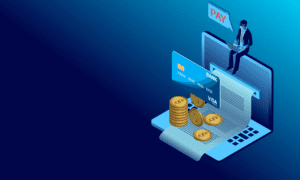Our financial health is something that we should all be working on improving every day. Financial wellness is the difference between living from paycheck to paycheck and snowballing loans, to financial freedom and owning what you want.
If you change the way you think about money, you can change how to spend it. Which will in turn change how you live your life. The key to financial freedom is to understand where your money comes from and how to spend it.
In this article, we are going to teach you 5 skills that will help you improve your financial wellness.
1) Think carefully before taking out a loan
Loans can be amazing things.
A loan for a car means that we can take a new job that’s further away and start making more money. A mortgage means that you can move to a bigger house and stop paying an arm and a leg in rent every month. And a personal loan can help you to pay off bills and stop you from having your water or electricity cut off.
In some situations, however, getting a loan is not the right option. And getting a loan for the wrong situation can often prevent you from being able to get one when you need it later down the line.
So, before you take out a loan, make sure that you really need to.
For more advice on when to take out a personal loan – click here.
2) Don’t ignore your credit score
We repeat – don’t ignore your credit score!
Your credit score can have more of an impact on your life than just stopping you from being able to get a loan.
A bad credit score means that you will be offered worse interest rates on every type of loan or credit card you take out. Which ends up with you losing more money over time.
Many employers will also check your credit score before hiring you. This is a way for them to judge whether you are a responsible person and whether they want to trust you to make money for them.
So, how can you improve your credit score? Well, the easiest way to boost your credit score is to pay your bills on time and pay off your loans. Here are some tips that will help you to do that.
3) Slash your household bills
The first thing you should be checking when you are trying to save money is that you are not overspending on your bills.
Jump on a price comparison website, and see if you can get a cheaper deal elsewhere. Many people can save $100s each year.
4) Pay off your loans ASAP
If you want to improve your financial wellness then you should be focusing on paying off any smaller debts you have.
Note, larger debts like a mortgage will fine you if you pay it off early.
When you put together your budget, you may notice that you have spare money each month. Why not skip a meal out every month and put the money you save towards paying off a debt. Little choices like that will add up quickly.
5) Budgets are essential
Unless you are bringing in more money than you could possibly spend – you need to budget to keep your finances healthy. When you aren’t keeping track of your finances, it’s all too easy for expenses to add up without you noticing.
So, how do you set up a successful budget?
Well, there are two steps – setting up the budget and sticking to it.
Step 1 – Go through your finances with a fine-toothed comb. Look at what you are earning, what your essential outgoings are, and what else you’re spending money on.
Add up all of the money you have to spend every month (on bills and debts), then look at how much money you want to save or extra money you want to pay into your debts. Take these two figures off how much money you earn and you have your spending money for the month.
Step 2 – If you are worried that you won’t be able to stick to your budget. Try the cash envelope technique. Take out the money you have to spend for the month in cash. Split the cash into envelopes for spending categories (meals out, drinks, etc). Then only spend cash for the month. When an envelope is empty, you don’t spend anymore.



































